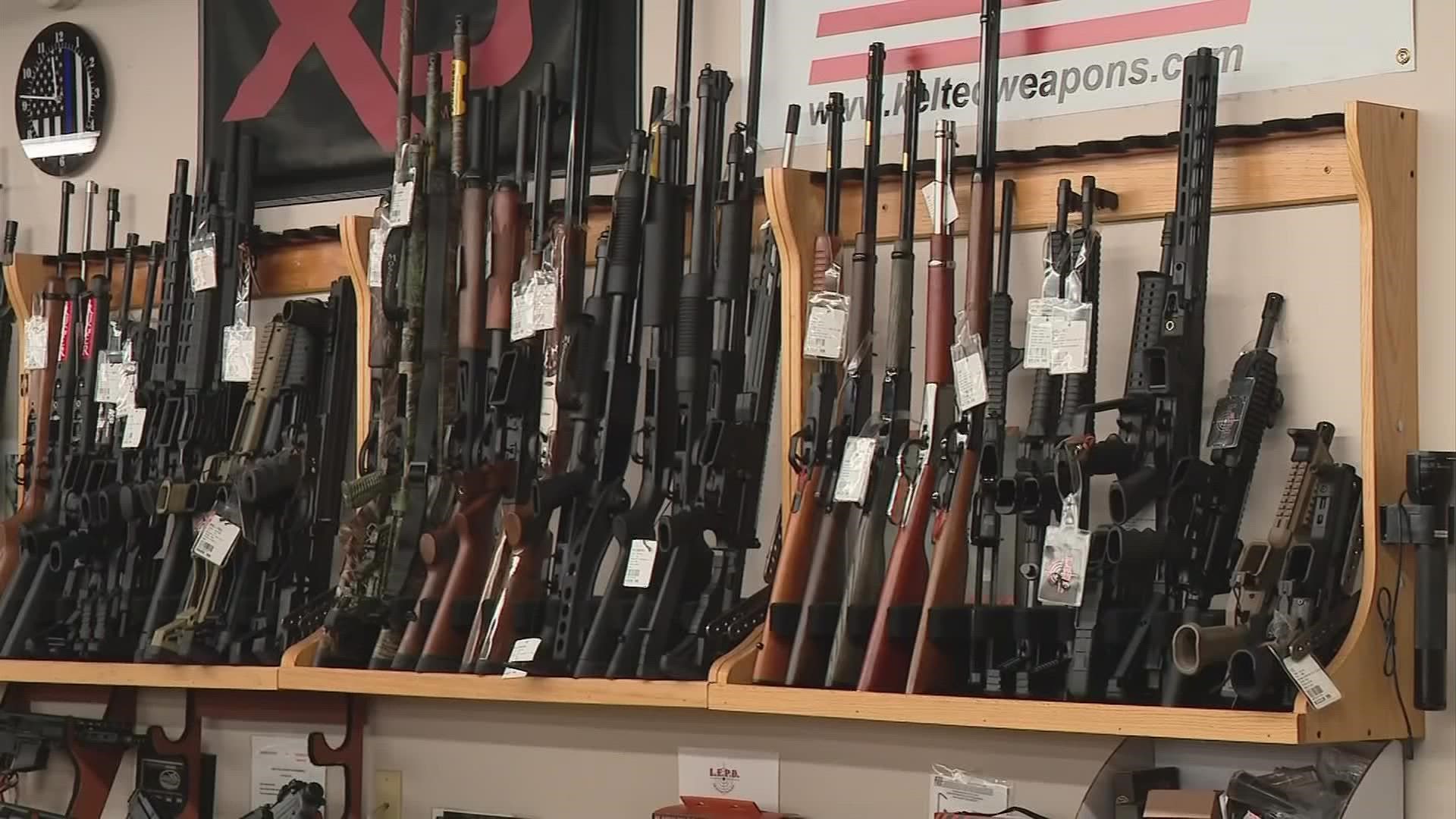COLUMBUS, Ohio — Payment processor Visa Inc. said earlier this month it plans to start separately categorizing sales at gun shops, a major win for gun control advocates who say it will help better track suspicious surges of gun sales that could be a prelude to a mass shooting.
Visa joins Mastercard and American Express, which also said they plan to move forward with categorizing gun shop sales.
Gun rights advocates and gun lobbyists have argued that categorizing gun sales would unfairly flag an industry when most sales do not lead to mass shootings.
Eric Delbert, the owner of L.E.P.D. Firearms & Range in Columbus, said he has already seen more people using cash to buy goods at his gun shop.
“It's going to put people in jeopardy, or on a list simply because they've come to LEPD and bought a purse,” Delbert said.
Visa said it would adopt the International Organization for Standardization’s new merchant code for gun sales, which was announced on Sept. 9. Until then, gun store sales were considered “general merchandise.”
“Following ISO’s decision to establish a new merchant category code, Visa will proceed with next steps, while ensuring we protect all legal commerce on the Visa network in accordance with our long-standing rules,” the payment processor said in a statement.
Visa’s adoption is significant as the largest payment network, and with Mastercard and AmeEx, will likely put pressure on the banks as the card issuers to adopt the standard as well. Visa acts as a middleman between merchants and banks, and it will be up to banks to decide whether they will allow sales at gun stores to happen on their issued cards.
Gun control advocates had gained significant wins on this front in recent weeks. New York City officials and pension funds had pressured the ISO and banks to adopt this code.
Two of the country's largest public pension funds, in California and New York, have been pressing the country's largest credit card firms to establish sales codes specifically for firearm-related sales that could flag suspicious purchases or more easily trace how guns and ammunition are sold.
Merchant category codes now exist for almost every kind of purchase, including those made at supermarkets, clothing stores, coffee shops and many other retailers.
Delbert said he's all for change if it helps make a dent in crime, but he argues that won't be the case.
“We want to be a part of the solution and we would certainly help with that solution with stopping the homicides and the crime we are seeing on the streets. 99% of those firearms are not coming from a legitimate store,” Delbert said.
The pension funds and gun control advocates argue that creating a merchant category code for standalone firearm and ammunition stores could aid in the battle against gun violence. A week before the mass shooting at the Pulse Nightclub in Orlando, Florida, where 49 people died after a shooter opened fire in 2016, the assailant used credit cards to buy more than $26,000 worth of guns and ammunition, including purchases at a stand-alone gun retailer.
Gun rights advocates argue that tracking sales at gun stores would unfairly target legal gun purchases, since merchant codes just track the type of merchant where the credit or debit card is used, not the actual items purchased. A sale of a gun safe, worth thousands of dollars and an item considered part of responsible gun ownership, could be seen as a just a large purchase at a gun shop.
“The (industry's) decision to create a firearm specific code is nothing more than a capitulation to anti-gun politicians and activists bent on eroding the rights of law-abiding Americans one transaction at a time,” said Lars Dalseide, a spokesman for the National Rifle Association.
Over the years, public pension funds have used their extensive investment portfolios to influence public policy and the market place.
The California teacher's fund, the second largest pension fund in the country, has long taken aim on the gun industry. It has divested its holdings from gun manufacturers and has sought to persuade some retailers from selling guns.
Four years ago, the teacher's fund made guns a key initiative. It called for background checks and called on retailers “monitor irregularities at the point of sale, to record all firearm sales, to audit firearms inventory on a regular basis, and to proactively assist law enforcement.”

